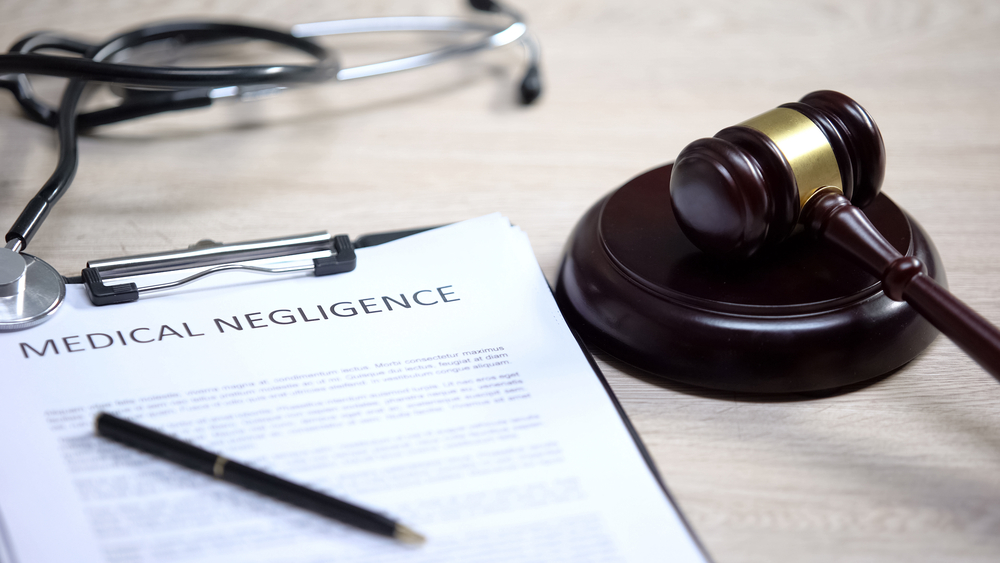 Doctors, surgeons, and other healthcare workers are among the most often sued careers in the country. This is because the potential for negative outcomes is simply much higher than in other jobs that don’t quite literally place someone’s life in your hands. However, despite how often these cases arise, they’re notoriously difficult for plaintiffs to win. This is due in large part to the fact that it is difficult to separate a negative outcome that’s a natural risk of a procedure from a negative outcome that occurred due to a doctor’s negligence. Even more difficult to separate is the difference between medical negligence and medical malpractice. Keep reading to learn more about determining whether or not a doctor is liable for your negative medical outcomes, as well as what the differences are between negligence and malpractice.
Doctors, surgeons, and other healthcare workers are among the most often sued careers in the country. This is because the potential for negative outcomes is simply much higher than in other jobs that don’t quite literally place someone’s life in your hands. However, despite how often these cases arise, they’re notoriously difficult for plaintiffs to win. This is due in large part to the fact that it is difficult to separate a negative outcome that’s a natural risk of a procedure from a negative outcome that occurred due to a doctor’s negligence. Even more difficult to separate is the difference between medical negligence and medical malpractice. Keep reading to learn more about determining whether or not a doctor is liable for your negative medical outcomes, as well as what the differences are between negligence and malpractice.
Determining a Doctor’s Liability
When you or a loved one has experienced a negative outcome as the result of medical treatment, it’s natural to look for someone to blame. However, before you can determine whether the doctor has committed medical malpractice or medical negligence, it’s important to determine whether or not the doctor has any liability for those outcomes at all. As we stated above, all forms of medical treatment come with their own risks. This includes everything from taking prescriptions to undergoing complicated surgeries. When you accept medical treatment, you accept these risks. However, there are situations in which the doctor’s actions can increase the danger to the patient, and these are the cases that lead to medical malpractice or medical negligence lawsuits.
To determine whether or not a doctor has any liability for your injuries, you and your attorney will need to examine whether or not the doctor has breached their “duty of care” to you. Every interaction between doctor and patient includes an expectation that the doctor will provide the best possible care for the patient’s circumstances, and that they’ll do everything in their power to uphold the Hippocratic Oath to “do no harm.” You must be able to prove that the doctor breached that duty in some way.
If you can show that their actions or inaction contradict what any other reasonable medical professional would have done, you may be able to claim that they have some liability in the harm caused to you. For example, if you were given a medication and had a negative reaction to it, the doctor would not have breached duty of care; no reasonable medical professional can predict how patients will react to new medications. However, if the doctor overprescribed medication or provided the wrong medication to you, this could be considered a breach of duty of care and result in a lawsuit.
What Is Medical Negligence
Once you’ve determined that the doctor has some liability in your injuries, it’s time to dig into the details to determine whether you have a case for medical negligence or medical malpractice. These two terms are very closely related, and it can often be difficult to draw a clear line between them, but we’ll provide as clear a breakdown as possible.
Firstly, medical negligence occurs when a doctor or other healthcare provider makes a mistake with no intent to do harm and no awareness of the error that they made. This can occur when a prescription is filled incorrectly, a patient is misdiagnosed, or an error occurs during surgery. As an example, let’s say that a surgeon damages a patient’s intestine during surgery, but is unaware that they’ve nicked the tissue. The patient is closed up, and the surgery is deemed a success until the patient’s damaged intestinal wall ruptures, requiring another emergency surgery and causing lasting harm to the patient’s digestive tract.
This would be classified as medical negligence. Mistakes happen in surgery, but the surgeon was unaware of the damage caused and couldn’t necessarily have prevented the harm that occurred.
What Is Medical Malpractice
Malpractice, on the other hand, occurs when a medical professional is aware of the potential negative consequences of their action before the action is taken, and they proceed anyways. (Note that medical malpractice does not have to include the actual intent to do harm; only the knowledge that harm could occur, and proceeding regardless of that knowledge.) Using the example above, let’s say that the surgeon scrubbed into surgery while slightly intoxicated. They should know that performing surgery while under the influence of drugs or alcohol significantly increases the risks to the patient; if the same mistake as described above were to occur because the surgeon chose to scrub in despite their mental state, it would be classified as malpractice.
How It Impacts Your Case
Malpractice cases are much more difficult to prove, but often have higher payouts than medical negligence cases. Therefore, you should only proceed with a malpractice case if you have very clear evidence to support that claim. If you’re uncertain whether the harm you’ve experienced classifies as medical malpractice or medical negligence, contact The Harr Law Firm for a consultation.